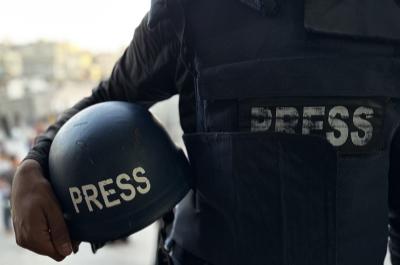
Former US Presidential Envoy to Iraq denies US policy led to rise of ISIL
- Official sent by President George W Bush to run Iraq after the 2003 US invasion denies his policies led to rise of ISIL
- Calls for “probably 10,000” US troops to be sent to Iraq to fight ISIL and stay “as long as American interests are served”
- Defends appointment of the Iraqi transitional government along sectarian lines as “the least bad solution that we could carry out”
Paul Bremer, sent by President George W Bush to run Iraq following the 2003 US invasion admitted that “there were plenty of people who could have done it [his job] better” but denied any link between the policies he implemented during his tenure in Iraq and the rise of ISIL.
In a forthcoming interview with Al Jazeera English’s Head to Head, former head of the Coalition Provisional Authority (CPA) Paul Bremer defended his controversial de-Baathification decree. The decree, signed by Bremer less than a week after arriving in Iraq in May 2003, has been criticized for marginalizing tens of thousands of public servants of which a vast majority were Sunnis.
Challenged by Al Jazeera English’s Mehdi Hasan on these criticisms, Bremer said the decree was “carefully drawn to affect only 1% of the Ba’ath party, about 20 000 people” and admitted that “the mistake I made was turning it over to Iraqi politicians” to decide who should be affected.
Bremer also rejected the idea that his decision to disband the Iraqi army helped fuel the insurgency:
“I did not disband or destroy the Iraqi army. There was not a single member of the Iraqi army, not a single unit standing to arms on April 17th as General Abizaid has testified himself. The question wasn’t to disband. That was a mistake. We should never have used that verb. The question was should we recall the army […].”
Responding to the third main criticism aimed at Bremer’s decision making in Iraq, the appointment of a transitional government along sectarian lines, the former U.S. Presidential Envoy to Iraq conceded that it “the insistence by the Shia on having a majority, set in train a path which regrettably did exacerbate sectarian tensions” and that it “certainly was not ideal” but that it was “the least bad solution”.
Bremer defended his legacy in Iraq by pointing out the political and economic progress the country has achieved since the overthrow of Saddam Hussein and that Iraqis were “on the whole better off” and denied any responsibility for the hundreds of thousands of deaths that followed the US invasion and occupation.
On the current crisis in Iraq, Bremer called on the United States to carry out a “much more vigorous air campaign” and to send “probably10,000” U.S. troops. Questioned by Hasan on whether he would have advocate for US troops to stay in Iraq “forever”, Bremer responded: “I would stay as long as American interests are served by being in Iraq”.
This special edition of Head to Head was filmed in Al Jazeera’s Washington DC studio. This series also includes interviews with former Russian politician and author Natalia Narochnitskaya, Former Pakistani Foreign Minister Hina Rabbani Khar and BJP Secretary Ram Madhav at the Oxford Union.
In each episode, Hasan goes head to head with a special guest, asking the probing and hard-hitting questions few dare to ask on the big issues such faith, foreign intervention, Syria, ISIL, the Middle East, and US foreign policy.
Did the US occupation of Iraq create ISIL? with Paul Bremer will be broadcast on Friday 4th December at 20.00 GMT and will be repeated on Saturday 5th December at 12.00 GMT, Sunday 6th December at 01.00 GMT and Monday 7th December at 06.00 GMT.
*ENDS*
Notes for Editors:
Please credit ‘Head to Head’ and Al Jazeera English if you use any quotes from this release.
All episodes of series one are available online: http://www.aljazeera.com/programmes/headtohead/
Follow Head to Head on Twitter @AJHeadtoHead











